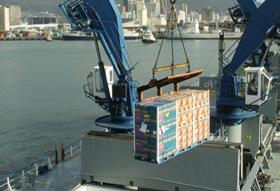
South Africa’s citrus industry has met to take stock of its 2016 season, with progress in dealing with citrus black spot (CBS) part of the agenda. According to those attending the meeting, the picture that emerged particular on CBS was quite positive.
Sources say that during the annual general meeting Deon Joubert, the South African Citrus Association’s special envoy to the EU, briefed industry leaders on dealing with CBS in Europe.
It is clear that South Africa no longer needs to focus only on CBS to avert threats to their market in the European Union.
Rather than assessing what new curve ball CBS can throw at them, the message was that issues such as the drought and fruit shortages, should be focused on. Not that the industry will rest on its laurels – industry leaders were warned they should be vigilant because things can go wrong very quickly.
It was previously reported that the South African industry have already spent more than a R1bn on measures of compliance to EU regulations on CBS. Whether this includes losses where fruit had to be diverted to other markets due to the threat of interceptions, is not certain.
The fact is that after the dark days of possible EU market access closure at the end of 2014 due to CBS, the industry has performed remarkably well to reach its current status. One of the most important issues resulting from this was a remarkable degree of industry unity which paints a very encouraging picture as it heads into the future to meet further challenges.
Industry leaders said that by the end of August 2016 South Africa had recorded only two CBS interceptions during the 2016 season. Given the progress during the previous seasons it is clear that the South Africa citrus industry seems to have averted a real crisis through its cohesive action.
While dealing with CBS has proved succesful, the country's fresh produce industry is reported to be focusing on other market access issues which are looming on the horizon.
FCM (false codling moth) is one issue which could perhaps pose much bigger problems for South Africa, because it will affect the total fresh produce export industry.
There are some indications that FCM could become a controlled pest in the EU and therefore included in its legislative quarantine list within the next few years. In other countries where this has happened South African growers and exporters have to deal with cold sterilisation.
It is generally accepted by the South African industry that the introduction of cold sterilisation for fruit exported to Europe would put an impossible burden on the country. Serving the needs of the present list of countries demanding cold sterilisation nearly fills the entire South African cold sterilisation capacity at present, and dealing with an additional volume of citrus, such as that exported to the EU, to undergo this process would be a major task for the industry.
Citrus sources say that the experience in dealing with CBS over the past three years is proving very useful to the country in dealing with market access issues. In time this unified approach as experienced with CBS will also prove very useful in dealing with FCM which could be an even bigger challenge.



